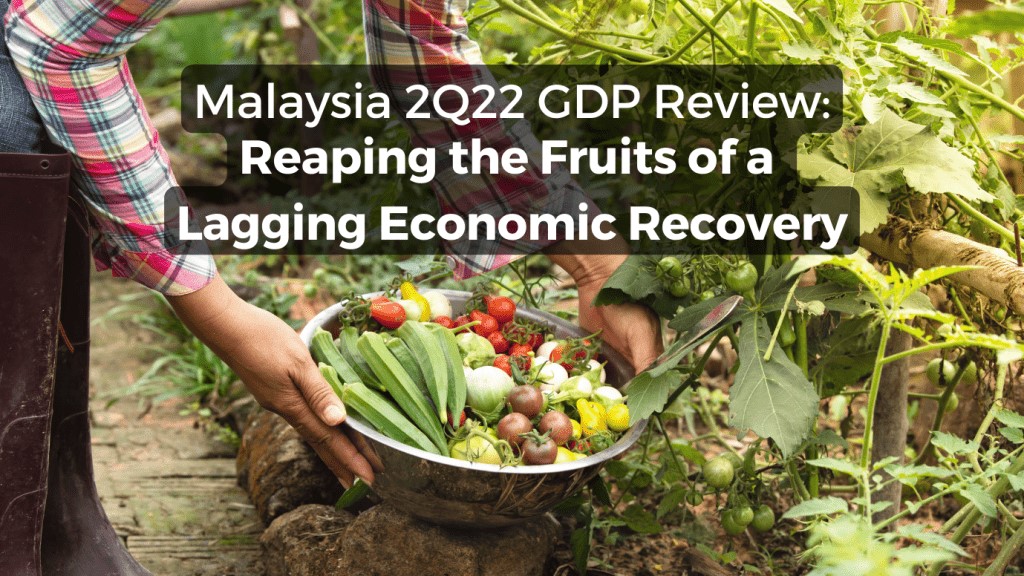By Opus Asset Management Sdn Bhd
- Malaysian 1Q22 Gross Domestic Product (GDP) rose 5.0% YoY (+3.6% QoQ). Malaysia’s GDP figure of +5.0% YoY in 1Q22 resoundingly exceeded the Bloomberg economists’ median consensus of +2.3%, while the only “slow” month in Jan’22 (+4.3% YoY) was reflective of the flood damage suffered towards end-Dec’21.
- Continued GDP growth in 1Q22 due to sustained recovery in private consumption and services sector. The manufacturing sector’s contribution to GDP declined slightly (1Q22: +6.6% YoY; 4Q21: +9.1%YoY), ostensibly due to continued supply chain disruptions and a higher commodity price environment from the Russia-Ukraine conflict. However, the lifting of lockdown measures allowed private consumption’s GDP contribution to rebound from better consumer sentiment (1Q22: +5.5% YoY; 4Q21: +3.7% YoY), as well as the services sector which contributed +6.5% YoY in 1Q22 (4Q21: +3.2%).
- GDP growth matched by slow, but steady improvements in Malaysia’s labour market. Malaysia’s unemployment rate declined gradually in lockstep with the economic recovery (1Q22: 4.1%; 4Q21: 4.3%) which is expected to continue in view of the further lifting of pandemic restrictions by May 15, although youth unemployment remains a structural concern (Mar’22: 13.1%; pre-pandemic low Jan’20: 10%).
OpusAM’s opinion:
- Slight boost for domestic private consumption from EPF withdrawals and minimum wage hike for 2Q22 GDP. Moving forward, we see support for continued GDP growth in 2Q22 with catalysts from the recent RM10k EPF withdrawal and minimum wage hike (implemented May 1) which should provide a boost to the private consumption power of Malaysian citizens.
- Stronger than expected growth numbers a clear path to rate normalization. In the context of Bank Negara Malaysia’s preemptive 25bps rate hike post May 10-11 meeting, the stronger-than-expected 1Q22 GDP reading reinforces our view that BNM may continue on its normalization path with another 1-2 rate hikes in 2H22. However, we remain aware that there may be global headwinds to Malaysia’s continued growth arising from but not limited to COVID-induced slowdowns in China’s economy, larger quantum US Federal Reserve (Fed) rate hikes and the ongoing Russia-Ukraine conflict.
Disclaimer
The information, analysis and opinions expressed herein are for general information only and are not intended to provide specific advice or recommendations for any individual entity. Individual investors should contact their own licensed financial professional advisor to determine the most appropriate investment options. This material contains the opinions of the manager, based on assumptions or market conditions and such opinions are subject to change without notice. This material has been distributed for informational purposes only and should not be considered as investment advice or a recommendation of any particular security, strategy or investment product. Information provided herein may include data or opinion that has been obtained from, or is based on, sources believed to be reliable, but is not guaranteed as to the accuracy or completeness of the information. No part of this material may be reproduced in any form, or referred to in any other publication, without express written permission. Opus Asset Management Sdn Bhd and its employees accept no liability whatsoever with respect to the use of this material or its contents.





